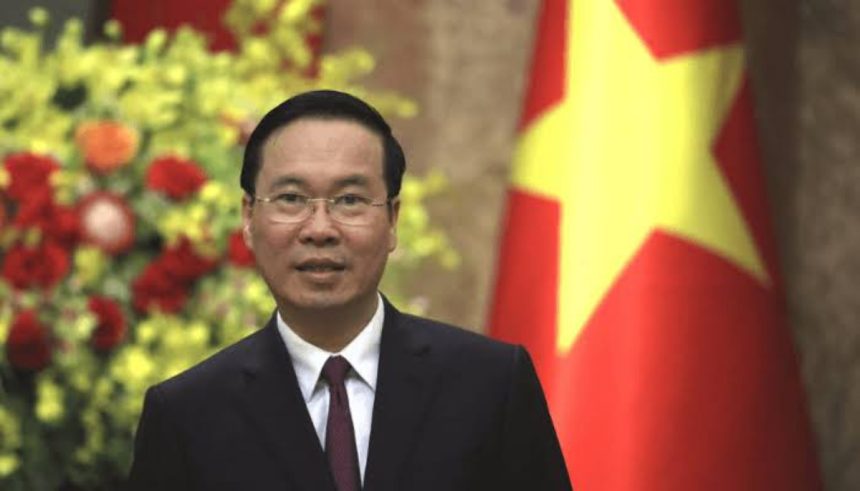Vietnam’s political landscape experienced a significant shift as President Vo Van Thuong resigned from his position, a development announced by the Communist Party on Wednesday amidst an aggressive anti-corruption campaign.
The central committee accepted Thuong’s resignation, citing his involvement in unspecified “violations and shortcomings,” which have reportedly tarnished the reputation of the Party, the State, and Thuong personally.
Thuong’s resignation marks a notable moment in Vietnam’s political history, as it follows a series of dismissals and legal actions against high-profile figures in a sweeping anti-corruption drive.
This includes the ousting of his predecessor and the prosecution of several ministers and business executives on charges of fraud and corruption.
The National Assembly is set to convene in a special session to formalize Thuong’s departure.
His tenure as president, which began on March 2 of the previous year following Nguyen Xuan Phuc’s resignation, was marked by a pledge to combat corruption, aligning him with General Secretary Nguyen Phu Trong, the nation’s most influential political figure.
While the explicit reasons for Thuong’s resignation remain undisclosed, the Ministry of Public Security has recently widened an investigation into a development firm linked to Quang Ngai province, where Thuong previously held a key party position.
Political analyst Benoit de Treglode suggests that internal party dynamics are at play, indicating a power shift within the Communist Party as General Secretary Trong’s health declines.
The anti-corruption efforts led by Trong have garnered public support, with recent trials initiating against leading business figures, signaling a continued commitment to rooting out corruption in Vietnam.





